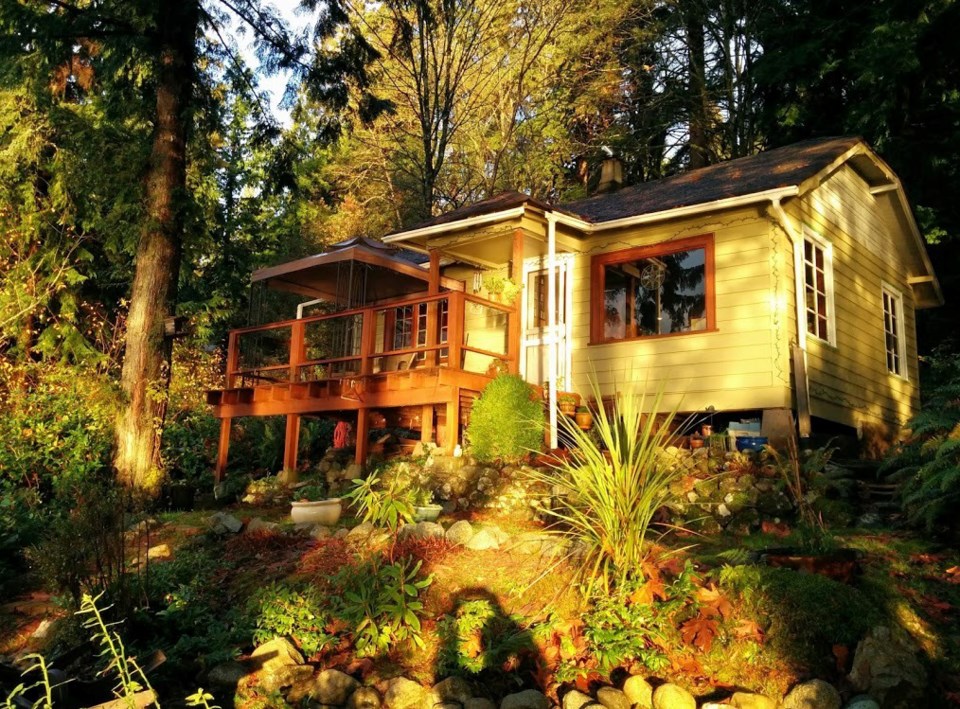Six rustic waterfront cottages in Belcarra could soon lose their status as protected heritage structures.
On Tuesday, Oct. 10, Port Moody city council began the process of repealing the protection it granted the homes in 2015, including a public hearing to be held in the near future.
The repeal was requested by the Tsleil-Waututh First Nation last March, so it can work with Metro Vancouver to restore the foreshore in təmtəmíxwtən/Belcarra Regional Park.
In a statement, the Tsleil-Waututh said it was not consulted when the cottages were first built by Judge William Norman Bole nor when the city granted them heritage status.
The Nation's request doesn't extend to Bole's original home which it said will be restored in partnership with Metro Vancouver as a multi-purpose facility "that will have cultural, artistic and educational components."
In a report, Mary De Paoli, Port Moody's manager of policy planning, said removing the cottages' heritage protection "acknowledges that these lands have both environmental and archaeological significance to the Tsleil-Waututh Nation and provides an opportunity to restore and preserve these values associated with the foreshore lands."
Coun. Samantha Agtarap said much has changed in the past eight years as communities come to grips with their colonial past and begin building bridges of reconciliation with the First Nations who were there before them.
"When we know better, we need to do better," Agtarap said, adding acceding the Tsleil-Waututh a voice in the future of their ancestral home will help Port Moody strengthen its relationship with the First Nation.
Coun. Kyla Knowles agreed.
"This is the City of Port Moody acknowledging that these lands are of very important cultural significance to the Tsleil-Waututh Nation."
While the cottages were originally constructed in the early 20th century as summer homes for members of Bole's family, by the 1970s most were occupied year-round by residents who leased the homes from Metro Vancouver that had turned the 1,100-acre site along the north shore of Burrard Inlet where it meets Indian Arm into a regional park. In 1975, those residents organized as the Belcarra South Preservation Society.
On its website, the group said it provides "unofficial stewardship" of the southern shores of Belcarra Regional Park.
"We recognize it is both a responsibility and privilege to be the eyes and ears on Belcarra South and adjacent waters."
But in 2013, a protracted legal battle to preserve the cottages began after residents were notified by Metro Vancouver their leases would be terminated so it could begin converting the property to be part of the public park.
Jo Ledingham, a longtime resident in one of the cottages, told the Tri-City News at the time that members of the small enclave had made many improvements to the cottages over the years, including the installation of a water system, and their presence prevented the isolated shoreline from turning into a destination for late-night beach parties.
"I love the park. I love the land I am on. I am very connected to it," she said.
In February 2015, Metro Vancouver applied to demolish the six cottages in Port Moody and a month later the city advised it would turn the property into a heritage conservation area and seek heritage designation for the six cottages.
A subsequent resumption of their lease gave the residents a reprieve as various legal battles, appeals and strategies to save the cottages, including moving them to a different location or converting them for public use, played out.
But, in 2021, time ran out for the residents when a judicial review in the BC Court of Appeal upheld a notice to end their tenancy that had been issued in 2018.
Meanwhile, Metro Vancouver and the Tsleil-Waututh formalized an agreement in February 2020, that had been in the works since 2016, to manage the park co-operatively. It also renamed the park to recognize the First Nation’s ancestral home.
In its statement, the Tsleil-Waututh said the cottages are in disrepair and money that would otherwise be spent on their maintenance could be better used "towards the holistic restoration and betterment of the park."



